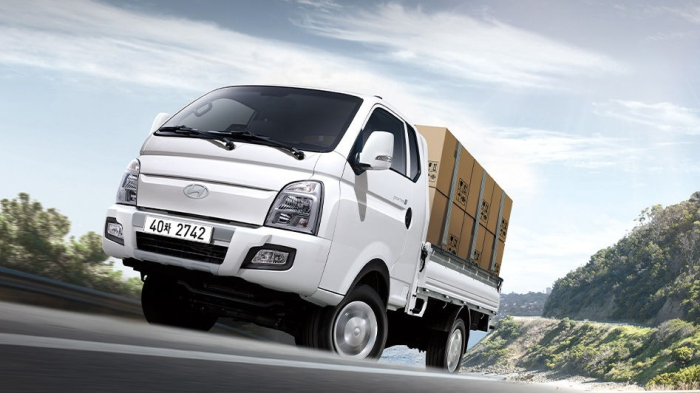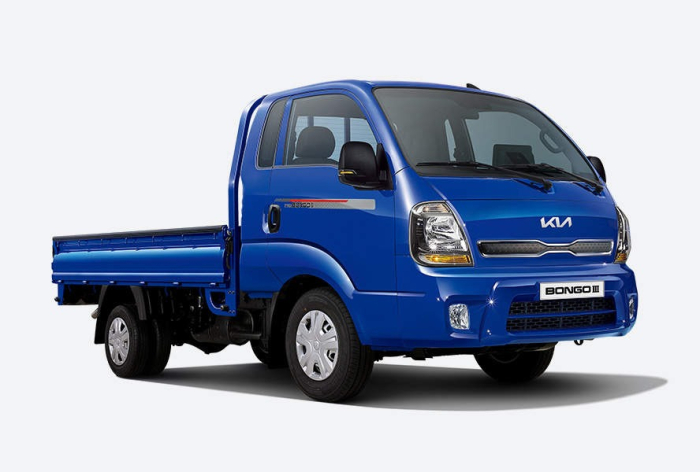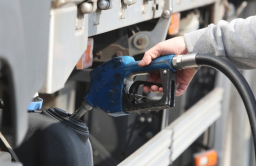-
KOSPI 2577.27 -2.21 -0.09%
-
KOSDAQ 722.52 -7.07 -0.97%
-
KOSPI200 341.49 +0.02 +0.01%
-
USD/KRW 1396 -2.00 0.14%
Korea’s small diesel truck ban powers LPG-fueled models
Automobiles
Korea’s small diesel truck ban powers LPG-fueled models
In the week following their Nov. 22 LPG truck launch, Hyundai and Kia sell more than 12 times this year's weekly average
By
Dec 07, 2023 (Gmt+09:00)
1
Min read
News+

South Korea plans to prohibit small trucks with diesel engines from new registrations next year, increasing sales of liquefied petroleum gas-powered models in the segment popular among local small business owners.
Hyundai Motor Co. and Kia Corp., the country’s two largest automakers, sold more than 30,000 units of their new 1-ton trucks with LPG engines in the week following their Nov. 22 launch, according to the Korea LPG Association on Wednesday. The sales were more than 12 times their weekly average this year. Such popularity prompted Kia to change the engine for the 1.2-ton truck to one powered by LPG.
Hyundai sold 25,180 units of the 2024 Porter II, while Kia sold 5,517 units of the Bongo III.
“LPG trucks with eco-friendly features and performance will usher in the era of green trucks,” said an official at the association.
TO CUT GREENHOUSE GAS EMISSIONS, NOX
South Korea is set to ban 1-ton trucks and small school buses fueled by diesel from January while allowing eco-friendly models such as LPG and electric trucks. Small business owners usually prefer LPG vehicles as they are cheaper than EVs and more convenient to fill.
The government plans to provide financial support of up to 9 million won ($6,813) to owners of those gasoil vehicles if they scrap them and buy new LPG models.
To meet the country’s eco-friendly policy, Hyundai and Kia ceased manufacturing diesel compact trucks and replaced them with LPG versions. The automaking units of the world’s No. 3 carmaker Hyundai Motor Group installed 2.5-liter LPG-powered turbo engines, increasing the power of engines by 24 horsepower compared to diesel versions to ease concerns over the insufficient power of LPG vehicles.

About 150,000 small trucks are sold a year in South Korea. Hyundai Motor expected greenhouse gas emissions and nitrogen oxide (NOx) to fall by 16,000 tons and 1.1 million tons a year, respectively, for every 100,000 LPG trucks sold based on each driving 10,000 kilometers (6,213 miles) annually.
Write to Jae-Fu Kim at hu@hankyung.com
Jongwoo Cheon edited this article.
More To Read
-
Jul 24, 2023 (Gmt+09:00)



